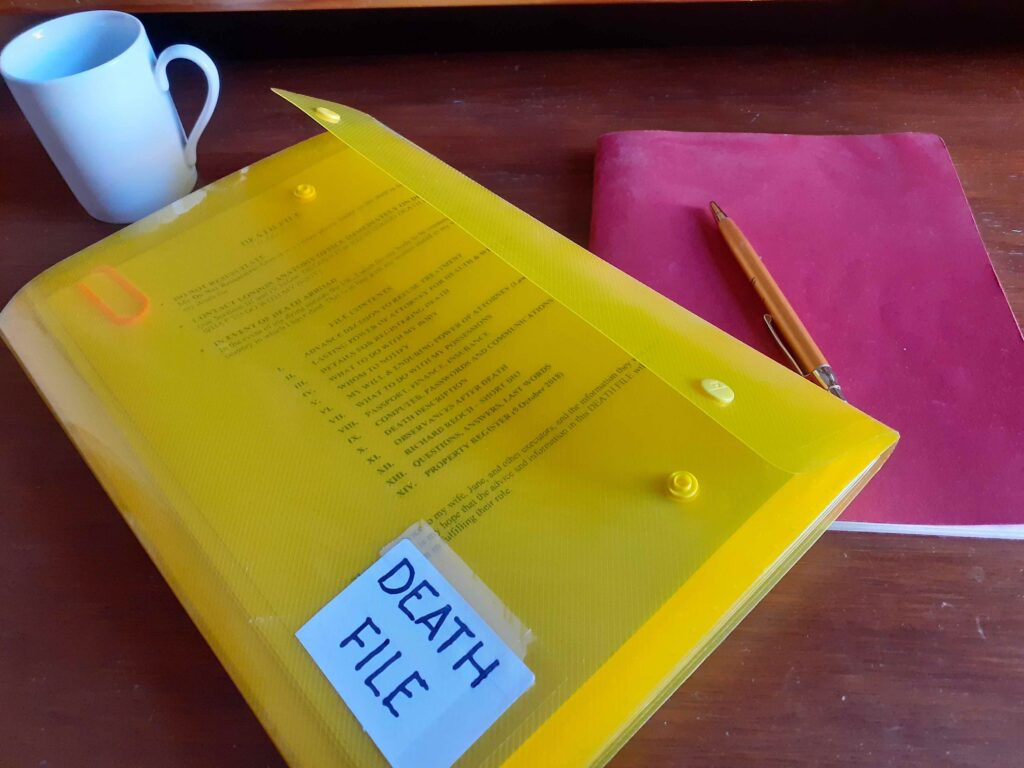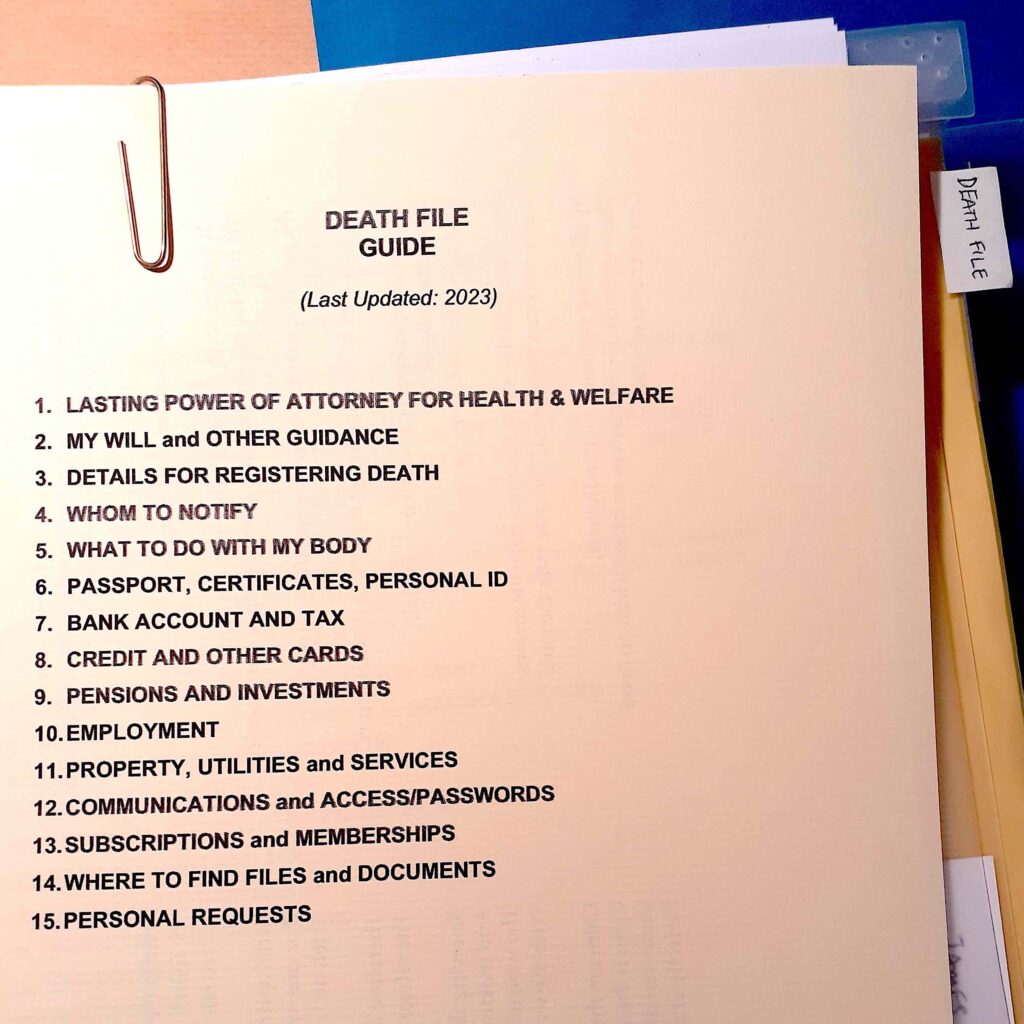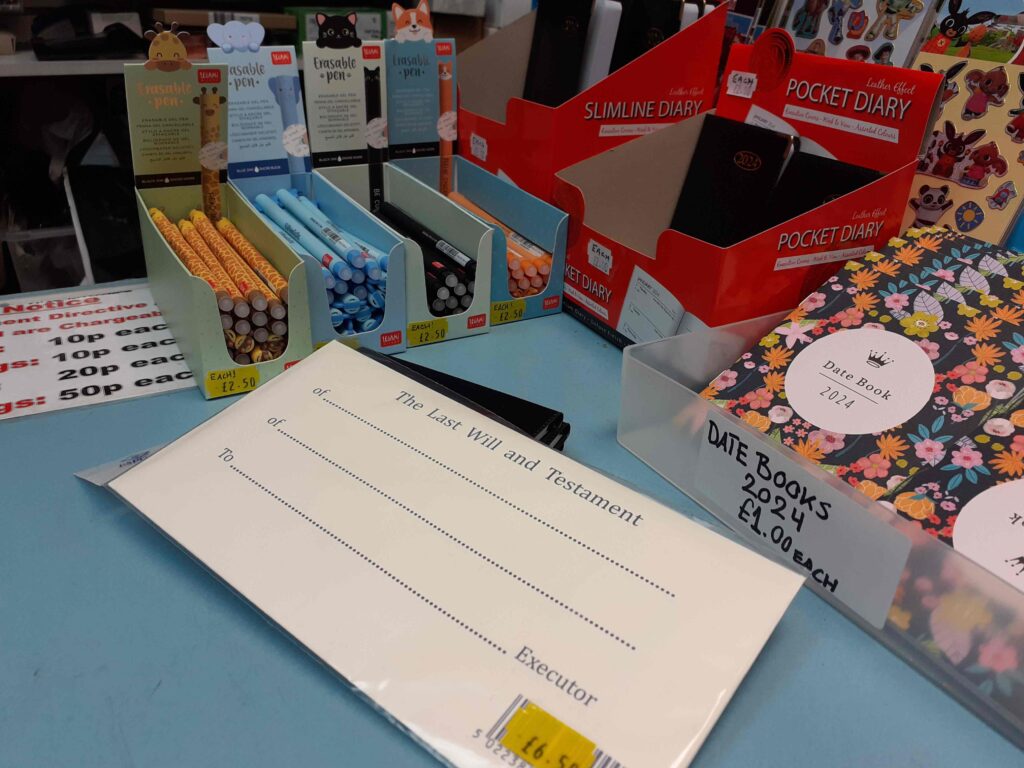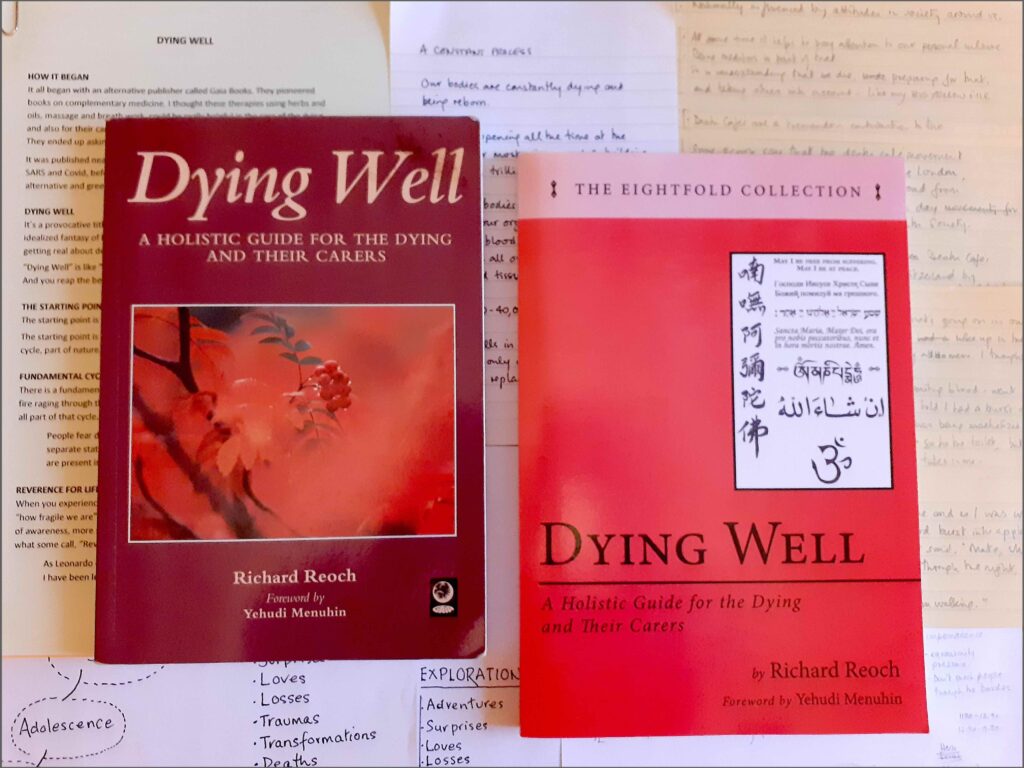“Thank you for teaching us,” the nurse said to me as she took out her phone and photographed what I call my Death File. We were in the Intensive Care Unit of the London hospital where my wife, Jane, was being treated for septic shock.
I had told the doctor in charge what Jane’s wishes were, and he asked me if I had any legal proof of that. I reached into my backpack, took out my yellow folder labelled “Death File,” and gave him two legally witnessed documents spelling out what she wanted and giving me the authority to act on her behalf.
It was when one of the nurses was scanning these documents into Jane’s medical records that she asked me how I came to have these papers with me in the midst of this life-threatening emergency.
I was startled that she and the other staff were so surprised.
I explained that I kept a regularly updated Death File – just in case of emergencies like this. I showed her the table of contents with the various categories of information in the file. That’s when she got out her phone, took a picture and thanked me “for teaching us.”

I could call it my “Emergency File.” One of my friends told me it might be better to call it a “Help File.” That would avoid the strong reactions people have to the word “death.”
What you call it is up to you. But, as you’ll see, it’s not really about you – it’s about your love for others.
People don’t think about this
It seems that most people don’t think about this. One result nowadays is that many people die – or are temporarily incapacitated – without anyone, even their closest relative or partner, being able to access their passwords or even knowing where to look for them.
Having an Emergency File is about much more than being efficient in a crisis. It is an act of kindness and generosity towards our family and friends – and anyone else who may be involved in caring for us.
I’ve also found my file incredibly helpful in day-to-day life when I’ve needed quick and reliable access to up-to-date personal records. Having them all in one place, and up-to-date, is a great asset.
Keep it simple
“Keep it simple” is the starting principle. Just getting the essentials together will make a big difference.
I recommend a large folder. You may prefer to keep records on your computer, but you also need something you can put the actual documents into. And there’s no point keeping records on our computers and phones if the information about accessing our devices and password-protected records isn’t stored somewhere else non-electronically!
You can begin with some basic details:
- Birth certificate, passport, or other official identification
- Marriage certificate/divorce papers
- Social security or health insurance details
- Bank account, credit cards and other financial or legal details
- Do you have a safety deposit box or any other safe storage to which someone you trust needs be able to get access in an emergency?
- Your Will
- Living will or advance directive (with your wishes about medical care) and Lasting Power of Attorney (which authorizes a person to act on your behalf if you are unable to make decisions yourself)

It’s helpful to have a guide at the beginning of your file, like a table of contents. You can use it to give the whole file an easy-to use structure so the person reading it can find what they are looking for.
You may already have your basic documents stored somewhere, but it will be a great help to have them all together in your file – or to have an easily accessible list that tells your loved ones where everything can be found!
The great thing about using a file is that you don’t have to compile this all at once. You can add anything. You can take anything out. You can make any changes you want at any time. In fact, I am currently re-doing my file because a lot has suddenly changed in my life.
If you have given your details or documents to a lawyer, be sure your file has their name, current address, phone number and any other contact details.
Thinking ahead
There’s nothing morbid about this. It’s actually about doing something that will benefit the people you love most or who will be caring for you in an emergency. There are also questions that it would be helpful to answer for the benefit of your loved ones – and have in your file:
- Who do you want to be informed in the event of an emergency? Be sure to keep their addresses and phone numbers up-to-date.
- When you die what would you like done with your body? If you want a funeral service, what would you prefer?
- What do you want done with your possessions? Is there anything you want someone in particular to have as a gesture of love and appreciation?
- Do you want to leave a message for anyone? (You can always put these kinds of messages in sealed envelopes in the file, if you wish.)
Whatever you put in your file will make a difference. Often family and friends end up arguing about what to do if someone is seriously ill or dies. You can lift that burden by making this file for them. So don’t be secretive about your file: make sure your family and close friends know it’s there!
A clear bell of compassion and clarity
Let me take you back for a moment to the Intensive Care Unit where the nurse was photographing my yellow folder. What was actually taking place was something very special, intimate and loving. Jane and I had talked carefully through each others’ wishes in the event of a medical crisis. Having it on paper in that file made it possible for the hospital to respect our heart-felt requests. That certainty was like a clear bell of compassion and clarity sounding in the midst of all the pain and confusion.
A final request
Finally, a simple request: if you have not yet made a will, please do. Legal systems vary from country to country. Wills vary too. In some places, you can get a will form in almost any stationery store. In some jurisdictions, you only need to write a single sentence, designating your executor(s) and beneficiaries, sign it and have two people sign it as witnesses – according to the instructions provided in the packet when you buy it.

I went into a stationery shop near where I live in London and bought this ready-to-use form in its own special envelope over the counter for my “Last Will and Testament.”
You can always update your will or add to it. Having a will cuts through miles of red tape and arguments after your death. And since death comes without warning, the time to make a will, if you haven’t done so already, is right now! Like making your emergency file, it will be a great kindness to others.
Dying Well

I first wrote about the value of having a Death File and a will in Dying Well – A Holistic Guide for the Dying and Their Carers. You’ll find information about Death Files, Wills and other helpful steps you can take right now on pages 130 to 137, both in the original edition and the newly re-issued edition published by Wipf and Stock. ISBN-13: 9781725268135. If you click on the book title above, you’ll be taken to the new publisher’s website. If you wish to order from other suppliers online, the book is widely available.